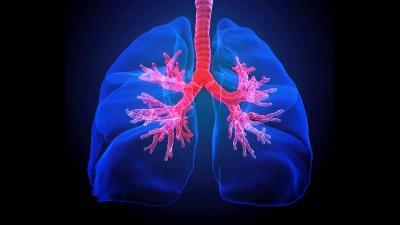NIH Budget Increase Offers Opportunity to Invest in Human-Relevant Research
Following the news that the National Institutes of Health (NIH) budget has increased by $3 billion for fiscal year 2018, the Physicians Committee wrote to NIH director Frances Collins, urging Collins to use the additional funds to prioritize human-relevant research. Read the letter below:

March 23, 2018
Dr. Francis Collins
Director, National Institutes of Health 9000 Rockville Pike
Bethesda, Maryland 20892
Dear Dr. Collins,
I am writing on behalf of the Physicians Committee for Responsible Medicine and our membership of more than 12,000 physicians and more than 175,000 other medical professionals, scientists, educators, and supportive lay members about increased funds provided to you in the recent fiscal year 2018 (FY18) Labor, Health and Human Services, and Education funding bill. We recommend that you invest this additional $3 billion in human-relevant research, not animal research.
The National Institutes of Health (NIH) is the nation’s leader in biomedical research and has the potential to fund groundbreaking discoveries to improve health and save lives. As you are aware, animal studies are costly, time-consuming, and often poorly predictive of human health. With a continuously growing population in the United States and new and emerging health issues always on the horizon, changes in our approach to research funding are urgently needed.
Currently, thousands of diseases affect humans that do not have effective treatments. Yet, new drugs take over 10 years to develop, typically cost more than $2 billion, and have a 95 percent failure rate in human clinical trials. Animals will always have physiological, anatomical, and genetic differences from humans that will impede the translation of research findings derived from animal biology. It is time to invest more in the development and application of human-based methods. We recognize that NIH is beginning to invest more in human-relevant models via the National Center for Advancing Translational Sciences and other initiatives; however this investment pales in comparison to the amount put towards animal research. We must shift this balance.
This bill allocates $1.8 billion for Alzheimer’s disease research, which is the only top-ten chronic disease without an effective intervention for treatment or prevention. Today, 5.3 million Americans suffer from Alzheimer’s, and this number is expected to triple by 2050. At present, Alzheimer’s research relies on animal models, despite the fact that 99.6 percent of Alzheimer’s drugs that appear successful in animals fail in human trials, and it is known to scientists that animals do not develop the disease to the same capacity as humans. Rather than misusing the supplementary $414 million that is being allocated to Alzheimer’s research for FY18 on ineffective animal research, it should be devoted to efficient, human- relevant research.
There are many humane and reliable human-relevant methods that are already being used to conduct scientific research and regulatory testing. Organs-on-chips and the multi-organ body-on-a-chip are cutting edge platforms that can significantly advance drug and toxicology screening and open the door for personalized medicine. Human-derived stem cells are redefining research by improving scientists’ understanding of how diseases progress and allowing the development of therapies for regenerative medicine. Three-dimensional bioprinting has made enormous advances, allowing the expansion of new therapies and diagnostics. This technology has the potential to one day manufacture custom-made organs.
Adequate funding and support is severely needed to increase the development and application of these technologies. Investment in human-relevant methods should be prioritized over unhelpful and ethically questionable “humanized” mice and animal-human chimeras. In addition to funding extramural investigative research using human-relevant models, we suggest NIH consider other strategies to support a transition away from animal research. For example, increased resources and incentives could be provided to allow easier access to human tissues for research, grant applications featuring human- relevant models could be “fast-tracked” for approval, and specific calls for proposals could specify human-relevant models.
We urge NIH to take this opportunity to increase its funding of groundbreaking human-relevant research, making research more ethical and effective and improving public health. Thank you for your attention to this urgent and important matter.
Sincerely,
Janine McCarthy, MPH Research Policy Specialist
Kristie Sullivan, MPH Vice President for Research Policy







